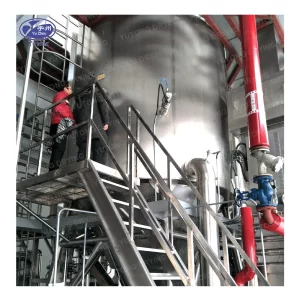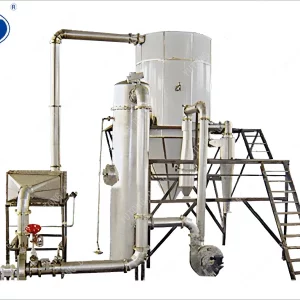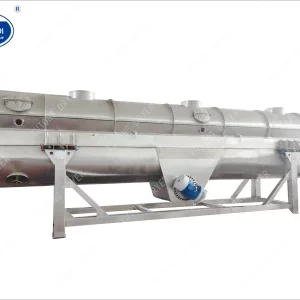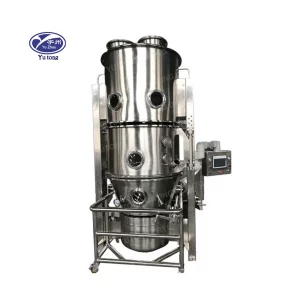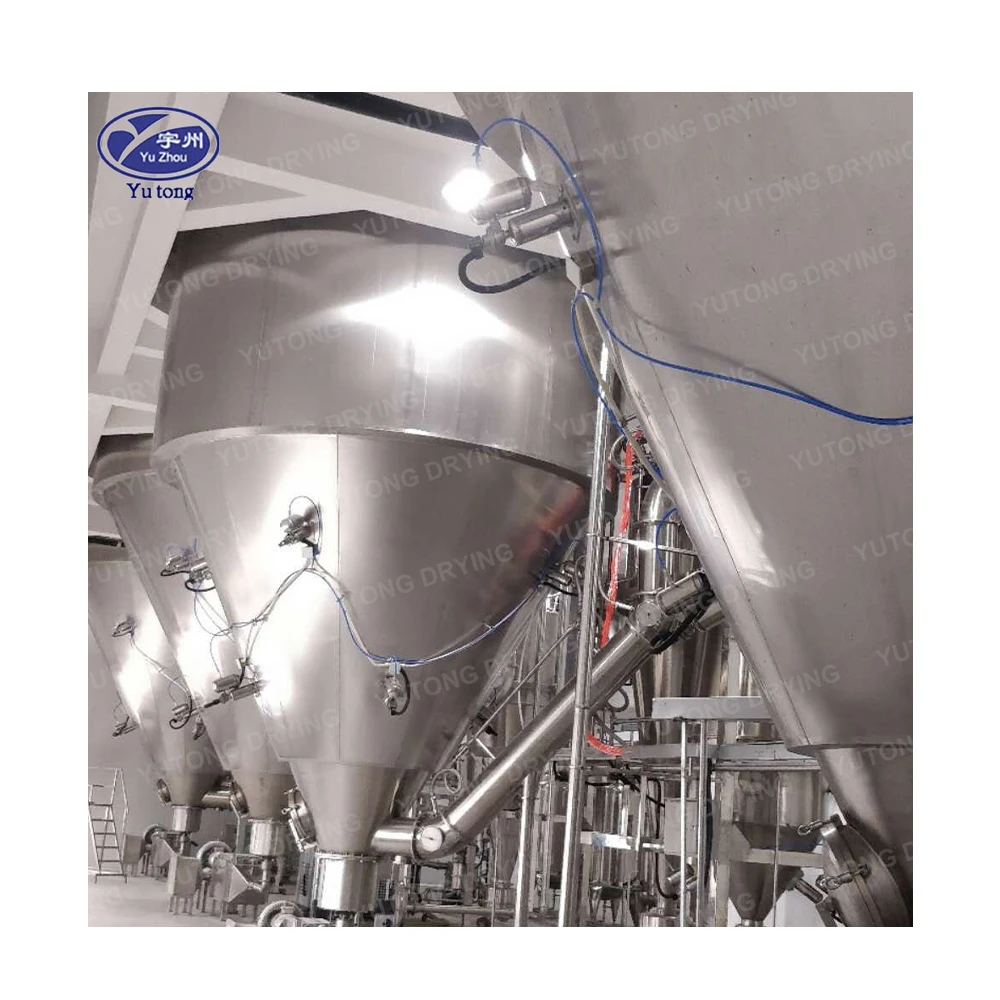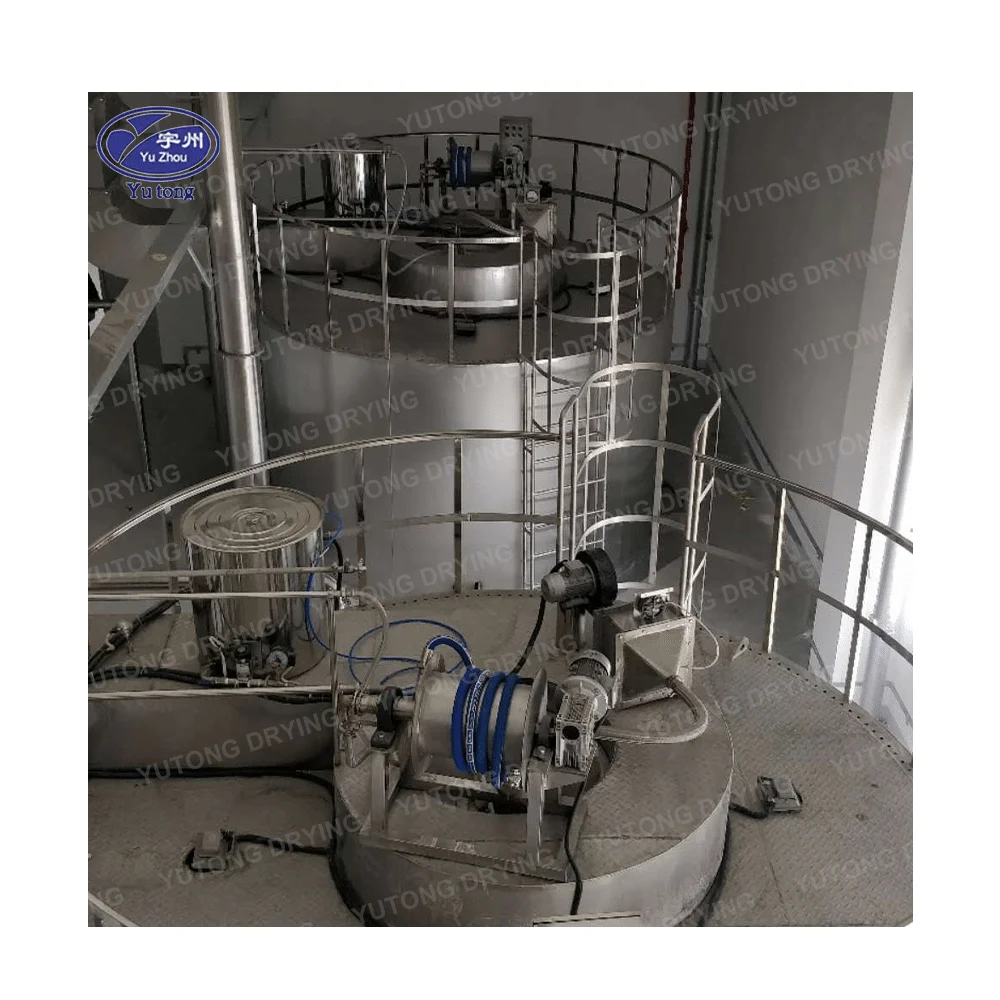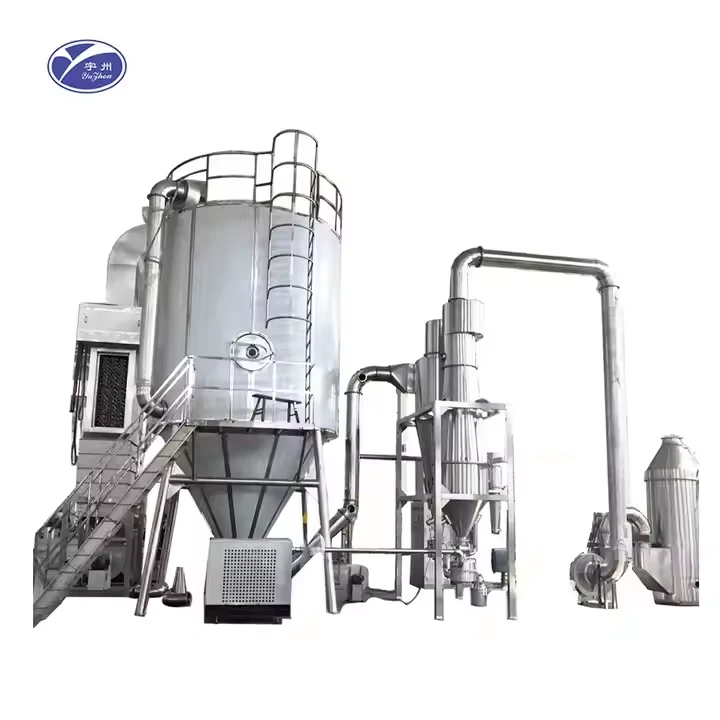Spray dryers are a crucial component in various industries due to their ability to transform liquids into dry powders efficiently. This process, known as spray drying, is essential in creating consistent, high-quality products across different sectors. In this article, we’ll dive into the industrial applications of spray dryers, covering their uses in food processing, pharmaceuticals, and chemicals.
Spray drying is a method of producing a dry powder from a liquid by rapidly drying with a hot gas. This is the preferred method of drying when the material to be dried is heat-sensitive. The process involves three main steps:
- Atomization: The liquid is transformed into a mist of fine droplets.
- Drying: The droplets are introduced into a stream of hot air, causing the moisture to evaporate quickly.
- Collection: The resulting dry particles are collected from the drying chamber.
This process allows for the production of a consistent, fine powder suitable for various industrial applications.
Food Processing and Spray Dryers

Dairy Products
Spray drying is widely used in producing milk powders, which are essential for long shelf life and easy transportation. The process helps retain the nutritional value of milk while reducing its volume.
Instant Coffee and Tea
Instant beverages are popular due to their convenience. Spray drying helps preserve flavor and aroma, ensuring a high-quality product that dissolves easily in water.
Flavorings and Additives
In food processing, spray dryers are used to create powdered flavors and additives. This allows for easy incorporation into recipes, ensuring consistent taste and texture.
Pharmaceutical Applications of Spray Dryers
Le pharmaceutical industry relies on spray drying for creating fine, uniform powders essential for drug formulation and delivery.
Drug Formulation
Spray dryers help in producing powders with specific properties, crucial for controlled drug release. The process can also improve the solubility of poorly soluble drugs, enhancing their effectiveness.
Vaccine Production
In vaccine manufacturing, spray drying is used to stabilize and preserve sensitive biological materials. This extends shelf life and simplifies storage and transport.
Nutraceuticals
Nutraceuticals, like vitamins and supplements, benefit from spray drying by converting liquid extracts into stable powders, maintaining their potency and efficacy.
Chemical Industry and Spray Dryers
Spray dryers are instrumental in the chemical industry for producing a variety of products.
Catalysts
Spray drying is used to create catalysts in powder form, essential for speeding up chemical reactions in industrial processes. The uniformity of the powder ensures consistent performance.
Detergents
In detergent production, spray dryers help create homogeneous powders that dissolve easily in water, improving cleaning efficiency.
Polymers and Resins
Spray drying aids in producing polymer powders and resins, which are integral to manufacturing plastics and coatings.
Advantages of Using Spray Dryers in Industry
Efficacité et cohérence
Spray dryers are known for their efficiency in producing consistent, high-quality powders. This consistency is crucial for industries that require precise formulations.
Versatilité
The versatility of spray dryers allows them to be used across various sectors, from food processing to pharmaceuticals and chemicals. They can handle a wide range of materials, including heat-sensitive and viscous liquids.
Durée de conservation améliorée
By converting liquids into powders, spray dryers extend the shelf life of products, reducing the need for preservatives and enhancing storage and transport.
Considerations When Using Spray Dryers
While spray drying offers numerous benefits, there are considerations to keep in mind:
Consommation d'énergie
Spray drying can be energy-intensive, requiring careful management to ensure cost-effectiveness. Implementing energy-saving technologies and processes can mitigate this.
Entretien des équipements
Regular maintenance of spray drying equipment is crucial to ensure optimal performance and longevity. This includes cleaning, inspecting, and replacing worn parts.
Impact environnemental
Industries must consider the environmental impact of spray drying, including emissions and waste management. Adopting eco-friendly practices and technologies can help minimize these effects.
Future Trends in Spray Drying Technology
The future of spray drying technology looks promising with advancements aimed at increasing efficiency and sustainability.
Innovations en matière d'atomisation
Developments in atomization technology aim to improve the size and consistency of droplets, enhancing the quality of the final product.
Energy-Efficient Solutions
Research is focused on creating more energy-efficient spray drying processes, reducing operational costs and environmental impact.
Pratiques durables
The industry is moving towards sustainable practices, such as using renewable energy sources and reducing waste, to minimize the environmental footprint of spray drying.
Conclusion
Spray dryers are a vital component in many industries, providing an efficient solution for transforming liquids into powders. Their applications in food processing, pharmaceuticals, and chemicals highlight their versatility and importance. As technology advances, we can expect further improvements in spray drying processes, enhancing efficiency and sustainability. By understanding and utilizing spray dryers, industries can continue to produce high-quality, consistent products that meet the needs of consumers.


